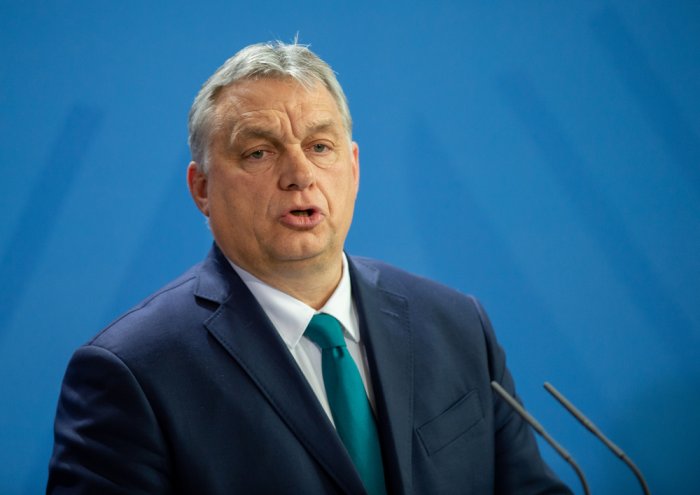Orbán orders large firms to cede 'extra profits' to state funds

Image by photocosmos1 / Shutterstock.com
Hungary's government will require banks, insurers, retail chains, energy companies, telcos, and airlines to turn over their "extra profits" to a utility fund and a defense fund for a period of two years, Prime Minister Viktor Orbán said in a video message on Facebook late Wednesday, according to a report by state news wire MTI.
The war is protracted, Brussels' sanctions policy is not improving, and together these will lead to a drastic rise in prices," Orbán said.
"Hungary's system of regulated utilities prices for utilities shields families, but energy prices continue to climb and it is becoming more difficult and costly to protect those families," he said.
"Additionally, we must strengthen the army without delay," he added.
"Meanwhile, banks and big multinational companies are amassing bigger gains and extra profit through rising interest rates and higher prices," he added.
"For this reason, the government has decided to set up a utilities protection fund and a defense fund. From these, we will pay the costs of the regulated utilities price system and the strengthening of the armed forces," he said.
"We will require banks, insurers, big retail chains, energy industry and trading companies, telecommunications companies, and airlines to pay a large part of their extra profits into these two funds. These measures will be temporary, limited to two years: 2022 and 2023," he added.
"We ask, we expect from whoever accumulates extra profit in this state of war to help people and contribute to the country's defense costs," he said.
"As we have promised, we will protect families, pensioners, workplaces, and the regulated utilities price system in this drawn-out period of war, too," he added.
He said details of the measures would be announced at a weekly press briefing on Thursday.
According to a report by Telex.hu, the forint, which had been weak all Wednesday, took a nosedive after Orbán announced the economic measures at around 6 p.m.
The forint weakened so much that the euro was already trading above 392 at around 6:30 p.m., around 393.4 just before 7 p.m., and a few minutes after 7 p.m. it was trading close to 395. In one working day, its exchange rate against the euro worsened by about 3.5%.
SUPPORT THE BUDAPEST BUSINESS JOURNAL
Producing journalism that is worthy of the name is a costly business. For 27 years, the publishers, editors and reporters of the Budapest Business Journal have striven to bring you business news that works, information that you can trust, that is factual, accurate and presented without fear or favor.
Newspaper organizations across the globe have struggled to find a business model that allows them to continue to excel, without compromising their ability to perform. Most recently, some have experimented with the idea of involving their most important stakeholders, their readers.
We would like to offer that same opportunity to our readers. We would like to invite you to help us deliver the quality business journalism you require. Hit our Support the BBJ button and you can choose the how much and how often you send us your contributions.










